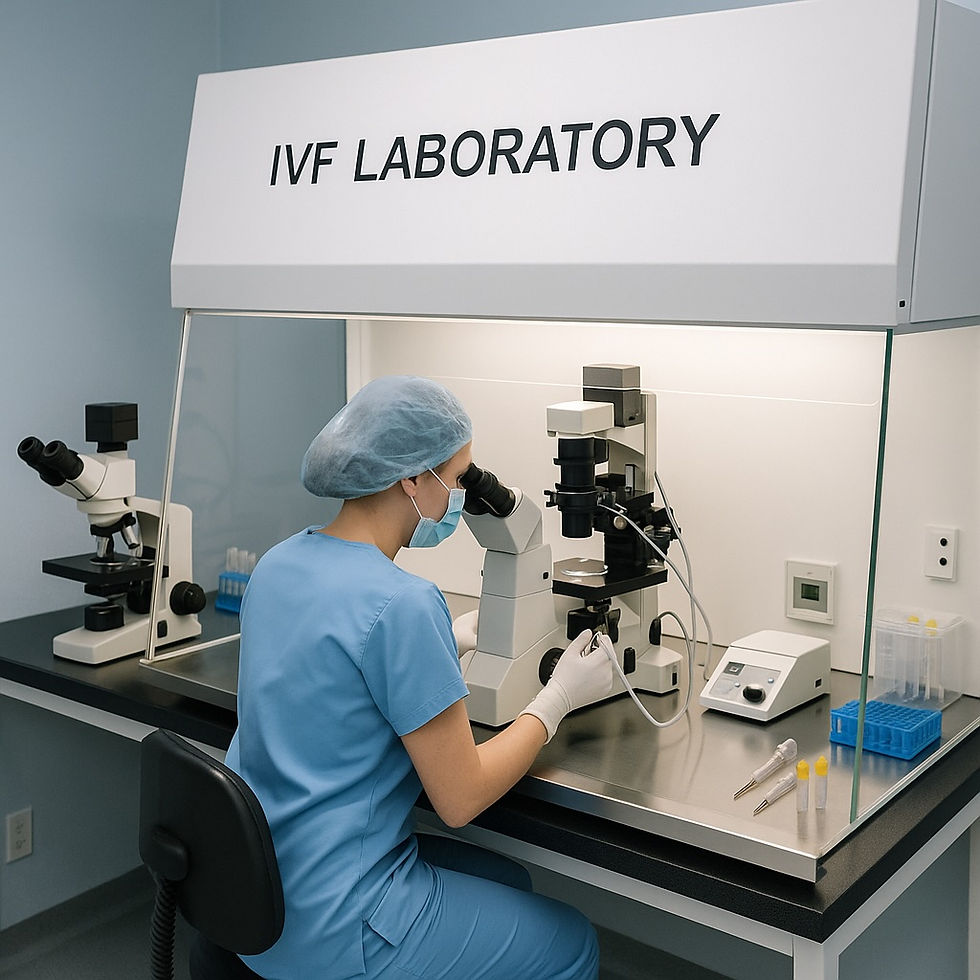What to Know About Achieving Pregnancy with IVF
- Alejandro Aldape Arellano

- Jun 30
- 3 min read
In today's world, many couples face challenges when trying to conceive. In vitro fertilization (IVF) has emerged as a popular assisted reproductive technology. This method allows for the fertilization of an egg by sperm outside the body, enabling many to achieve their dream of parenthood. If you're considering this route, understanding the process and its implications is essential.
IVF Pregnancy: The Basics
IVF involves several steps that take place over multiple weeks. The process typically begins with hormone therapy to stimulate the ovaries. As a result, multiple eggs are produced, which can be harvested during a minor surgical procedure. These eggs are then fertilized in a laboratory setting, where they are combined with sperm to form embryos.
After fertilization, the embryos are monitored for several days. If successful, one or more healthy embryos are selected for transfer into the woman's uterus. It’s also worth noting that not all cycles result in pregnancy. In fact, according to the Centers for Disease Control and Prevention, the average live birth rate for IVF is about 20-35 percent, depending on the woman’s age and other factors.

Preparing for IVF Treatment
Preparation for IVF can be both physical and emotional. Before starting treatment, it's crucial for couples to undergo a thorough fertility evaluation. This may include blood tests, pelvic exams, and sperm analysis for the male partner. The results will provide valuable insights into any underlying issues that may affect the IVF process.
Additionally, lifestyle changes can boost the chances of a successful pregnancy through IVF. For instance, maintaining a healthy diet, reducing alcohol consumption, and quitting smoking are all essential. Engaging in stress-reducing activities like yoga or meditation can also be beneficial.

Understanding Success Rates
Success rates of IVF can vary widely based on several factors. Age remains one of the most significant factors affecting success. Women under 35 have the highest success rates, with about 50 percent achieving pregnancy in a single cycle. However, as women age, these rates decline. For those over 40, the likelihood drops to around 20 percent per cycle.
Other factors, such as the cause of infertility, the quality of eggs and sperm, and the number of embryos transferred, also play a role. Couples should consult with their fertility specialist to understand their particular success rates.
The Emotional Journey of IVF
The IVF process can be emotionally taxing. Many individuals experience various feelings, ranging from excitement to anxiety and uncertainty. It's common to worry about the outcome, and this stress can take a toll on both partners.
Support systems are crucial during this time. Couples may want to seek support from friends, family, or support groups where individuals share their experiences. Additionally, counseling can help couples navigate the emotional challenges that arise during the IVF process.

Making the Decision: How Many Cycles to Try
Deciding how many IVF cycles to pursue can be a daunting choice. For some couples, one cycle may be sufficient, while others may opt for multiple attempts. It’s essential to consider personal financial situations, emotional well-being, and the overall health of both partners.
Moreover, after several unsuccessful attempts, couples often need time to reassess their options. Speaking with a fertility specialist can provide insight into alternative options, such as egg donation or even surrogacy, should they consider these routes.
Understanding Costs and Financial Support
The cost of IVF can also be a concern for many couples. In the United States, one cycle of IVF can range from $12,000 to $15,000 on average. These costs can increase with additional treatments, medications, and associated procedures.
Some insurance plans may cover a portion of infertility treatments, but coverage can vary significantly. It’s crucial for couples to review their insurance policies and discuss financial options with their clinic. Many clinics also offer financing options that can help alleviate the burden of expenses.
Final Thoughts
IVF offers hope to many couples struggling to conceive. While the journey may come with its challenges—both physically and emotionally—understanding the process can empower couples to make informed decisions. If you're considering IVF, navigating your journey with clarity and support can lead to the rewarding experience of parenthood. For those interested in learning more about effectiveness, resources, and next steps, consider checking information about pregnancy through IVF.
As you embark on this path, remember to take care of your emotional and physical well-being. Each individual’s journey is unique, but with the right support and information, many couples achieve their dream of starting a family.
%20transp.png)



Comments